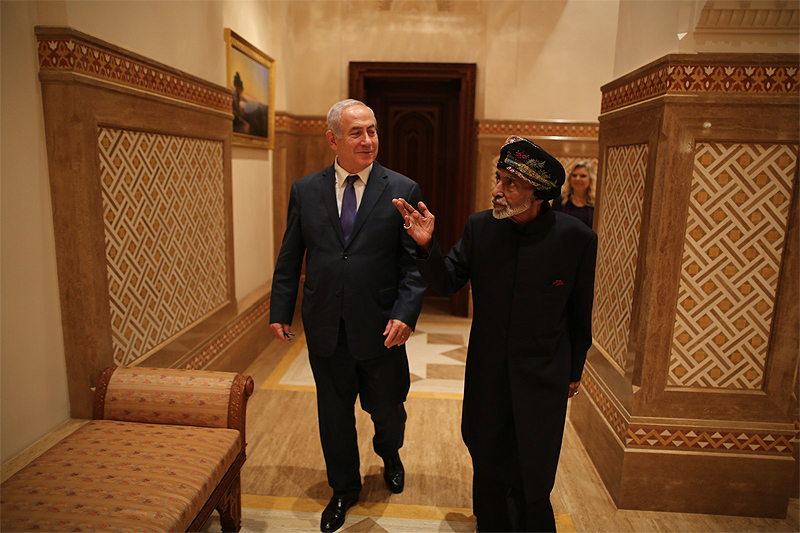Israeli spymaster sees 'onetime' chance for peace with Arabs sharing Iran worries
JERUSALEM: The head of Israel's intelligence agency Mossad said yesterday his country was renewing ties with Oman and had an "unprecedented opportunity" for a thaw with other Arab states. "Just recently, renewal of formal relations with Oman was declared and the establishment of a representative office of the (Israeli) foreign ministry in that country," Yossi Cohen told a security conference in Herzliya, near Tel Aviv.
"That is only the visible tip of a much broader secret effort," he said, adding that in addition to Israel's historic treaties with Jordan and Egypt other Arab countries had discreetly joined "the states of peace, some of them in an unseen manner". "We do not yet have with them official peace treaties but there is already a communality of interests, broad cooperation and open channels of communication," he added.

Israel and Oman agreed to open trade representative offices in the 1990s, but in 2000 the Gulf sultanate closed them after the outbreak of the second Palestinian intifada. Cohen said the current climate presents "an unprecedented opportunity, perhaps the first in the history of the Middle East, to reach a regional understanding which could lead to a comprehensive peace agreement". "Common interests, the fight against rivals such as Iran and jihadist terrorism, the close relations with the White House, and channels of communication with the Kremlin all combine to create what might be a onetime window of opportunity," he said. The Israeli foreign ministry declined to comment on his remarks.
In October, Israeli Prime Minister Benjamin Netanyahu held surprise talks with Oman's Sultan Qaboos in Muscat. The recent moves have raised Palestinian fears of a normalization of ties. Last week Oman said it would open an embassy in the Palestinian territories in support of the Palestinian people, in a first for a Gulf Arab state. The announcement was greeted warily by senior Palestinian official Hanan Ashrawi, who warned Oman against using the new embassy as a step towards establishing formal relations with Israel. "If this has a political price attached then certainly there will be ramifications," she said.
Mutual concerns about Shiite Iran have lately highlighted common interests between some Arab countries and Israel. In an apparently unprecedented step, a handful of Israeli journalists invited by the White House flew openly to Bahrain last week for a US-sponsored workshop unveiling economic planks of a broader plan for Israeli-Palestinian peace. The Gulf state has no diplomatic relations with Israel.
Yesterday, the Israeli foreign ministry said in a statement that Foreign Minister Israel Katz had visited Abu Dhabi for a UN climate conference, where he met United Nations chief Antonio Guterres and an unnamed "high ranking UAE official" to discuss bilateral ties as well as the Iranian threat, his office said. The United Arab Emirates does not have formal diplomatic ties with the Jewish state but Israeli Culture Minister Miri Regev paid a visit to Abu Dhabi in October. The statement did not say when Katz was there but described his visit as the first by a senior Israeli minister since the Bahrain conference.
Iran announced yesterday it had amassed more low-enriched uranium than permitted under its 2015 deal with major powers, its first major step in violation of the deal since the United States pulled out of it more than a year ago. Cohen reaffirmed Israel's policy that it would not allow its arch-foe to get a bomb. "The Mossad or the State of Israel did not sign the nuclear deal (and) will do everything to ensure that Iran will never have nuclear weaponry," he said. Iran denies ever seeking to acquire a nuclear bomb.
"Currently, it's about uranium enrichment at a relatively low percentage, and in amounts that are not large. The threat is to step up enrichment and increase the amounts," Cohen said, speaking before news of the enrichment breach. "Just imagine what will happen if the material stockpiled by the Iranians becomes fissionable, at military-enrichment grade, and then an actual bomb. The Middle East, and then the entire world, will be a different place. Therefore, the world must not allow this to happen." - Agencies










